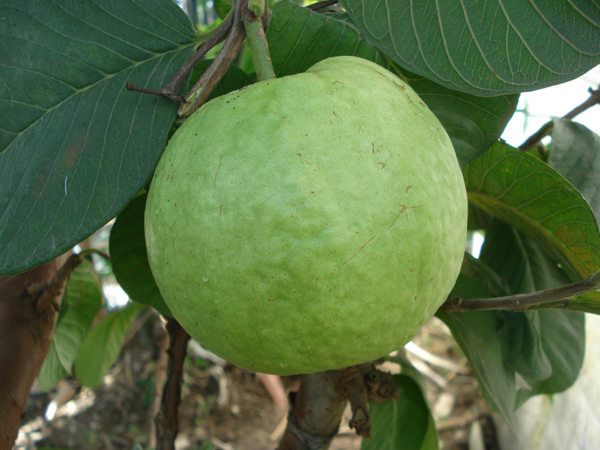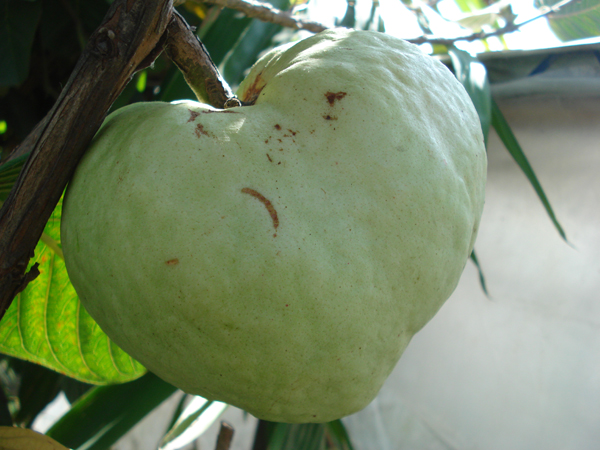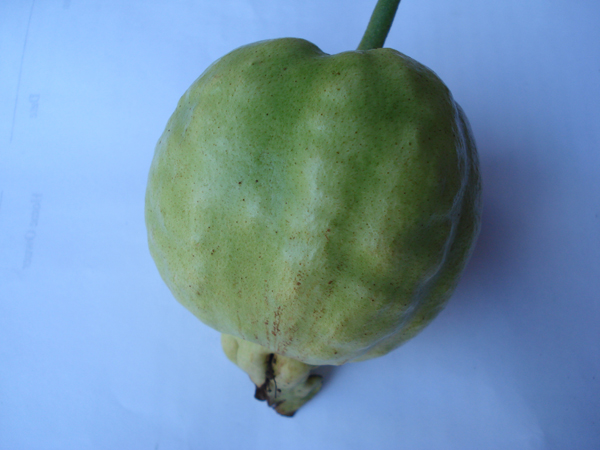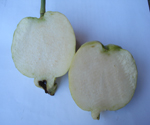
Growth Habit: Guavas are evergreen, shallow-rooted shrubs or small trees to 33 ft, with spreading branches. Growth in California is rarely over 10 - 12 feet. The bark is smooth, mottled green or reddish brown and peels off in thin flakes to reveal the attractive "bony" aspect of its trunk. The plant branches close to the ground and often produces suckers from roots near the base of the trunk. Young twigs are quadrangular and downy.
Fruits: Guava fruits may be round, ovoid or pear-shaped, 2 - 4 inches long, and have 4 or 5 protruding floral remnants (sepals) at the apex. Varieties differ widely in flavor. The better varieties are soft when ripe, creamy in texture with a rind that softens to be fully edible. The flesh may be white, pink, yellow, or red. The sweet, musky odor is pungent and penetrating. The seeds are numerous but small and, in good varieties, fully edible. Actual seed counts have ranged from 112 to 535. The quality of the fruit of guavas grown in cooler areas is often disappointing. |
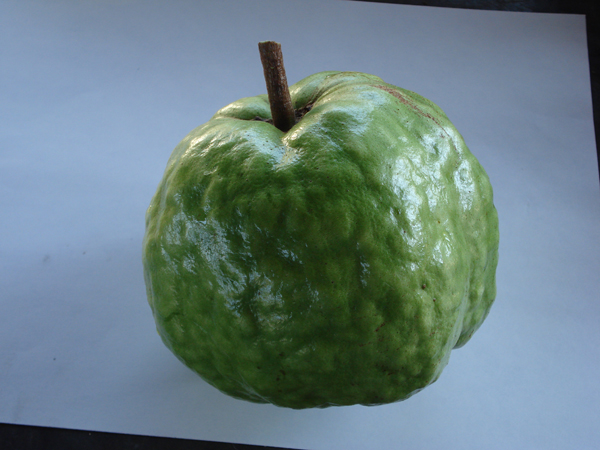
Frost protection:Overhead protection and planting on the warm side of a building or structure will often provide suitable frost protection for guavas in cooler areas. A frame over the plant covered with fabric will provide additional protection during freezes, and electric lights can be included for added warmth. Potted plants can be moved to a more protected site if necessary
|
Propagation: Guava seed remain viable for many months. They often germinate in 2 - 3 weeks but may take as long as 8 weeks. The tree can also be grown from root cuttings. They may also be grown by air-layering or from cuttings of half-ripened wood. Pieces 1/4 - 1/2 inch will root with bottom heat and rooting-hormone treatment. Trees grown from cuttings or air-layering have no taproot. |
